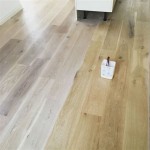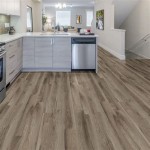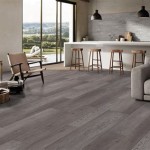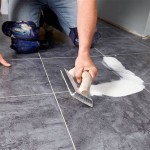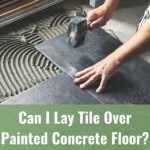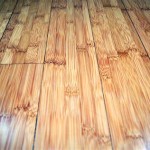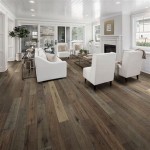What Is The Best Flooring To Put In A Damp Basement?
Basements, by their nature, are prone to moisture. This can create a challenging environment for flooring, leading to issues like mold, mildew, and material degradation. Choosing the right flooring for a damp basement is crucial for both aesthetics and longevity. This article explores several flooring options specifically suited to withstand moisture, examining their pros and cons to help inform your decision.
1. Epoxy Coatings
Epoxy coatings provide a seamless, waterproof surface ideal for damp basements. They are applied as a liquid and harden into a durable, resistant layer. This makes them highly resistant to moisture, spills, and stains. Epoxy coatings also offer design versatility, with various colors and finishes available, including those that mimic the look of other flooring materials like tile or marble.
One of the primary advantages of epoxy coatings is their ease of cleaning. The smooth, non-porous surface prevents dirt and grime from penetrating, making maintenance simple. Furthermore, epoxy coatings are extremely durable and can withstand heavy traffic and impacts. However, epoxy can be cold and hard underfoot. Adding rugs or mats can improve comfort.
Installation requires thorough surface preparation, including cleaning and patching any cracks. While DIY kits are available, professional installation is often recommended for optimal results. The application process can also be time-consuming, involving multiple coats and curing times.
2. Tile Flooring (Ceramic and Porcelain)
Ceramic and porcelain tiles are popular choices for basements due to their inherent water resistance. These materials are fired at high temperatures, making them dense and non-porous. This prevents water absorption, minimizing the risk of damage from moisture. Tile is also available in a wide array of styles, colors, and sizes, offering design flexibility.
Tile floors are relatively easy to clean and maintain, requiring only regular sweeping and mopping. They are also highly durable and resistant to scratches and stains. However, tile can be cold and hard, similar to epoxy. In damp basements, a waterproof membrane should be installed beneath the tile to provide additional protection against moisture seeping up from the concrete slab.
Installation can be more complex than other flooring options and often requires professional expertise, especially for larger areas. Grout lines, while sealed, can still be susceptible to moisture and staining if not properly maintained.
3. Vinyl Flooring (Sheet and Plank)
Vinyl flooring, available in both sheet and plank formats, is a cost-effective and water-resistant option suitable for basements. Sheet vinyl offers a completely seamless surface, providing excellent protection against moisture. Luxury vinyl plank (LVP) and luxury vinyl tile (LVT) mimic the look of hardwood or stone while providing the waterproof benefits of vinyl.
Vinyl is easy to install, making it a popular choice for DIY projects. It is also comfortable underfoot, offering more cushioning than tile or epoxy. Furthermore, vinyl is relatively easy to clean and maintain. However, it is less durable than tile or epoxy and can be susceptible to scratches and dents.
While vinyl itself is waterproof, the subfloor beneath it can still be affected by moisture. Installing a moisture barrier beneath the vinyl is crucial for preventing mold and mildew growth. Lower-quality vinyl can also be prone to off-gassing volatile organic compounds (VOCs), so opting for low-VOC or VOC-free options is advisable.
4. Engineered Wood Flooring
Engineered wood flooring is constructed with a layered design, making it more dimensionally stable and less susceptible to moisture damage than solid hardwood. The top layer is made of real hardwood, providing the aesthetic appeal of natural wood, while the core layers are typically made of plywood or high-density fiberboard (HDF). However, even engineered wood has limitations in damp environments.
While more resistant to moisture than solid wood, engineered wood is still susceptible to damage if exposed to excessive moisture. It is crucial to properly install a moisture barrier beneath the flooring and address any underlying moisture issues in the basement before installation. Engineered wood also requires more maintenance than other waterproof options, needing to be kept dry and clean.
Engineered wood offers a warmer and more comfortable feel underfoot compared to tile or epoxy, making it a desirable option for basement living spaces. However, it is generally more expensive than vinyl and requires careful consideration in damp basements.
5. Interlocking Rubber Tiles
Interlocking rubber tiles are a durable and water-resistant option that is particularly well-suited for basement gyms or play areas. These tiles are easy to install, requiring no adhesives, and can be easily removed or replaced if damaged. They offer excellent cushioning and slip resistance, making them a safe and comfortable flooring choice.
Rubber tiles are resistant to mold and mildew and can withstand heavy traffic and impacts. They are also relatively easy to clean and maintain. However, rubber tiles may have a distinct odor, especially when new. While this typically dissipates over time, it is something to consider if sensitive to smells.
Rubber tiles are not as aesthetically versatile as other options and may not be suitable for all basement applications. While offering good water resistance, they are not entirely waterproof, and standing water should be avoided.

Best Flooring For Basements That Flood Try Waterproof Vinyl

Thermaldry Basement Flooring Systems Waterproof

The Best Flooring Options For Your Basement America

The 10 Best Basement Flooring Options Girl

What Is The Best Flooring To Put On A Concrete Basement Floor

Selecting The Best Basement Flooring Next Day Floors

Best Flooring For A Wet Basement Family Room The Money Pit

What Is The Best Flooring For Basements Get Pros And Cons

What Are The Best Flooring For Basement In Homes

Best Budget Basement Flooring Ideas
See Also
